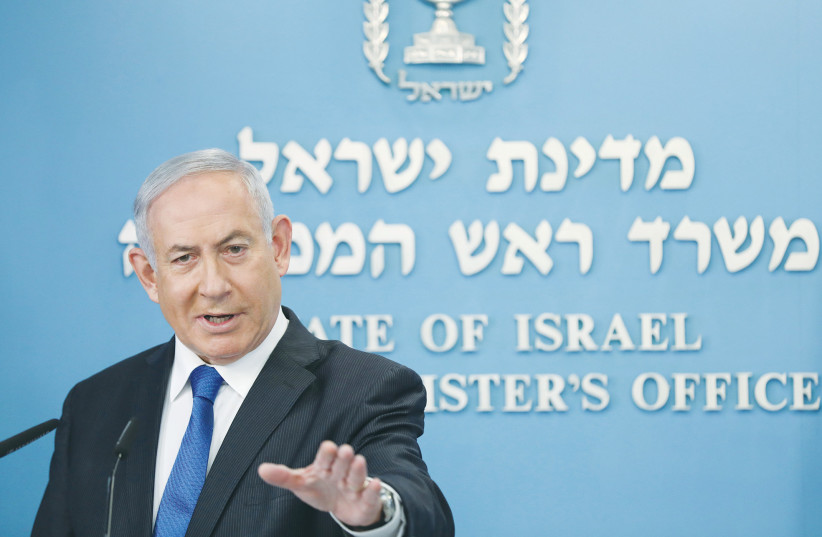MKs from the opposition parties Likud and Religious Zionism Party (RZP) worked on a number of fronts on Wednesday to hinder or delay the signing of the Lebanon maritime border agreement, which they oppose.
MK Simcha Rothman demanded in a letter to Knesset Speaker Mickey Levy that he refrain from opening the Knesset plenum on Wednesday evening, arguing that this was illegal. Levy announced on Tuesday night that he would open the plenum on Wednesday so that the cabinet could lay the agreement on the Knesset floor, where it needs to stay for two weeks before the agreement is finalized.
Rothman quoted a clause in the Knesset protocol that requires the Home Committee to unanimously approve any change of procedure. A "sudden" convening of the plenum on Hol Hamoed, especially while the Knesset is in recess due to the election, constitutes a change of procedure and thus must be approved first in the committee, Rothman argued.
In the meantime, an appeal to the High Court of Justice by MKs Yariv Levin (Likud) and Orit Struck (RZP) to issue a temporary freeze on the agreement's proceedings was not accepted, as the actual vote on the deal in the cabinet is only expected in two weeks.
Struck then sent a letter to the ministers from the cabinet's "Yamina" bloc, demanding that they use their veto powers in order to enforce Attorney-General Gali Miarav Bahara's preference that the agreement be brought for a vote on the Knesset floor.

In addition, Opposition leader and Likud chairman Benjamin Netanyahu on Wednesday afternoon gathered MKs from the party to discuss the Lebanon maritime delineation agreement, the party announced on Wednesday.
Not all of the party's MKs were invited. He will eventually speak to all of them in rounds in the coming days, the party said.
Netanyahu meeting with MKs
Netanyahu met earlier with MK Itamar Ben Gvir of the Otzma Yehudit faction at the Waldorf Astoria Hotel in Jerusalem. The content of their meeting was unknown. Ben Gvir, however, wrote on Twitter afterwards, "We will remember [Prime Minister Yair] Lapid, [Defense Minister] Benny [Gantz], Yvette [Finance Minister Avigdor Liberman], [and Interior Minister] Ayelet [Shaked], who abandoned Israel's security and surrendered to Hezbollah. We will fix what you are ruining."
This may indicate that the two have decided to accept the agreement as a done deal and attack the politicians who promoted it, instead of trying to block the deal itself.
The Security Cabinet announced earlier on Wednesday that it was going to push the deal forwards, and the full cabinet will convene in order to decide whether to send it to the Knesset for approval or merely for review, which is required by law.
Netanyahu severely criticized the agreement in recent days, arguing that it marked a "historic" surrender to Hezbollah and would harm Israel's national security, as Hezbollah would end up using the dividends from any gas fields that Lebanon may find.
No fields have yet been found in the gas field that is intended to be under Lebanese control. In addition, it is not clear why the money will fund Hezbollah, while the side representing Lebanon is the Lebanese government. Hezbollah has a political wing in the Lebanese parliament, but this does not mean that it will directly receive funds.
Netanyahu has not yet been officially briefed on the agreement, although a draft leaked earlier on Wednesday. He also turned down an invitation to a briefing by Gantz earlier this week. Lapid announced on Wednesday that he would invite Netanyahu to an official briefing, but has not yet done so.
